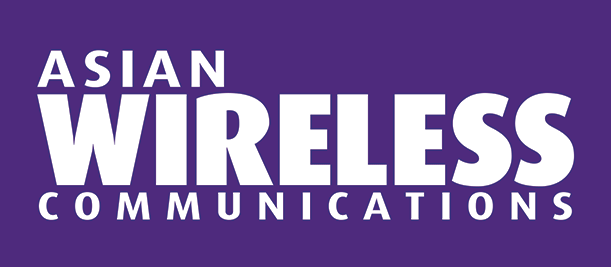01 December 2023

Harald Ludwig, chair, TCCA Technical Forum
Many mission critical organisations in public safety, railways and other sectors are planning to move from their narrowband TETRA, GSM-R or P25 systems towards mission critical broadband systems, which support mission critical services, known as MCX. The ‘X’ in MCX stands for MCPTT (Mission Critical Push-To-Talk), MCVideo and MCData. These are the services that 3GPP has standardised especially for the mission critical user base. The MCX services are using a 4G or 5G system as the transport layer.
The mission critical users and operators need assurance that the products they are using (mission critical devices with MCX clients and MCX servers) are fully compliant to the 3GPP standards. Only this compliance allows them to fully utilise the multi-vendor market. It allows them to purchase products from different vendors and use them on their systems, similar to how consumers expect today to use their smartphones on every network in the world. Standards compliance promotes a healthy ecosystem of innovation, choice, and price competition, and means mission critical network operators and users are not tied to a single supplier or forced into contracts for proprietary products.
Therefore, it is very important to ensure the products comply to the 3GPP standards. This is done by conformance testing of the MCX client and server implementations. However, because MCX is a relatively new technology there are no test platforms available yet on which the mission critical products and implementations can be tested. Test platform vendors are working to get these platforms ready soon.
To facilitate 3GPP standards compliance and interoperability, ETSI has been organising MCX Plugtests™ since 2017 in which vendors can do some early testing of their implementations. The implementations, which can be prototypes or final products, are tested against each other in the Plugtests. This is an opportunity for all participants in the Plugtests to ensure interoperability between their implementations and correct interpretation of the 3GPP standards. The Plugtests are not certification events, but they allow – in a dedicated test tools test stream – to check MCX client and server implementations against conformance test tools.
The test tools will need to undergo formal validation before they can be used for official certification testing. But before this formal validation they can also be ‘tested’ during the Plugtests. This testing of the test tools and the MCX clients and MCX servers is of mutual benefit. The tools can check their correct behaviour and the MCX clients and servers get an early exposure to (informal) conformance testing thus allowing them to make corrections before the products come to the market.
The eighth MCX Plugtests took place in Malaga, Spain in October 2023. This one-week event brought together 34 vendors and nearly 200 registered participants, which included 20 representatives from European and American governments, operators, and emergency bodies. Over the course of the week, individuals evaluated more than 360 different MCX and FRMCS (Future Railway Mobile Communication System) test scenarios at the University of Malaga’s facilities. The primary objective of this event was to assess mission-critical services defined by 3GPP. These services are crucial for emergency responders such as fire departments, police, civil protection services, and ambulances, as they require secure and always available communication systems for emergency situations.
Some vendors tested their implementations against the test tools from Valid8 and MCS-TaaSting. It should be noted that both test tools are not officially validated yet. The following vendors took the opportunity for checking the conformance of their implementations:
Nemergent, Alstom and Teltronic tested their MCX clients, which were installed on a Crosscall device, the Alstom on-board gateway and the Teltronic Cabradio, against the MCS-TaaSting and Valid8 conformance testers, using the 4G LTE radio access.
MC Labs, Alea, Frequentis, Kolibri and Teltronic tested their MCX clients, some of which are used in their dispatcher solutions, against the MCS-TaaSting and Valid8 conformance testers, using a direct IP connection.
HMF Smart Solutions, MC Labs, Motorola Solutions, Streamwide and Nemergent tested their MCX servers against the Valid8 conformance tester.
Rohill tested their Interworking Function (IWF) implementation on their TETRA system against the Valid8 conformance tester.
No individual results from the Plugtests are disclosed but it is good to see that these vendors are dedicated to developing standard-compliant products. They have received first reports on the conformance of their products and can use this information to ensure full conformance of their final implementations and products when they submit them for formal certification.
The Global Certification Forum (GCF) and TCCA are working together to establish a certification scheme for mission critical products. As soon as the first tester is validated the conformance testing and certification program can start. This is planned for the first half of 2024.
Ensuring mission critical devices and networks are interoperable is a key part of GCF’s vision to enable the high quality, reliable and secure wireless communications demanded by users and industries across the globe. It is equally key to TCCA’s vision to promote standardised critical communications solutions and the benefits of open and competitive markets in efficiently developing and delivering these solutions.
The next generation of mission critical services, delivered over 3GPP based networks and devices, will be revolutionary and their shape and scope are being defined now. GCF and TCCA are keen to ensure that all parties interested in ensuring the seamless interoperability of devices and networks in this new world have the opportunity to contribute to the discussion and, in doing so, help to fashion a certification programme that benefits all stakeholders.






